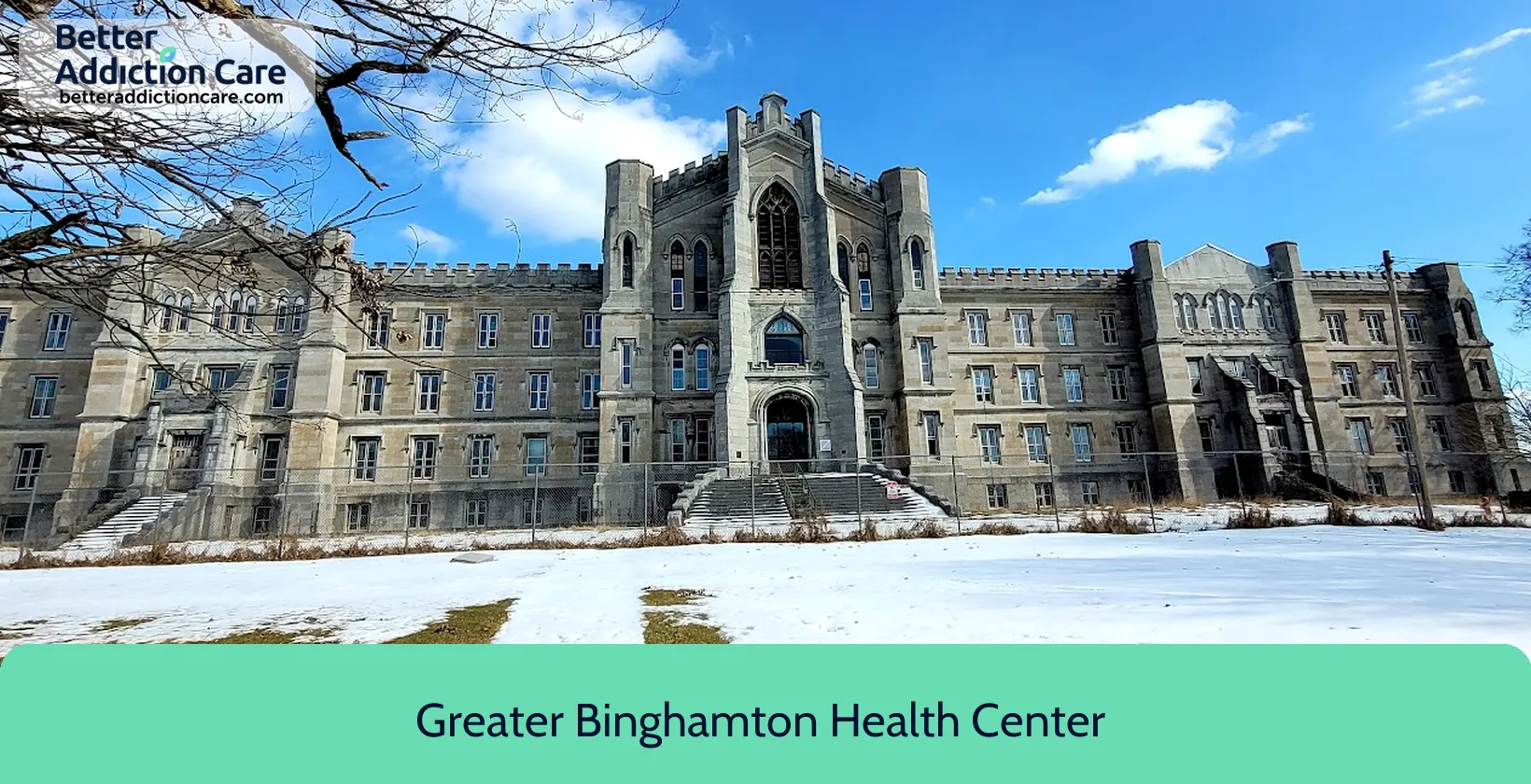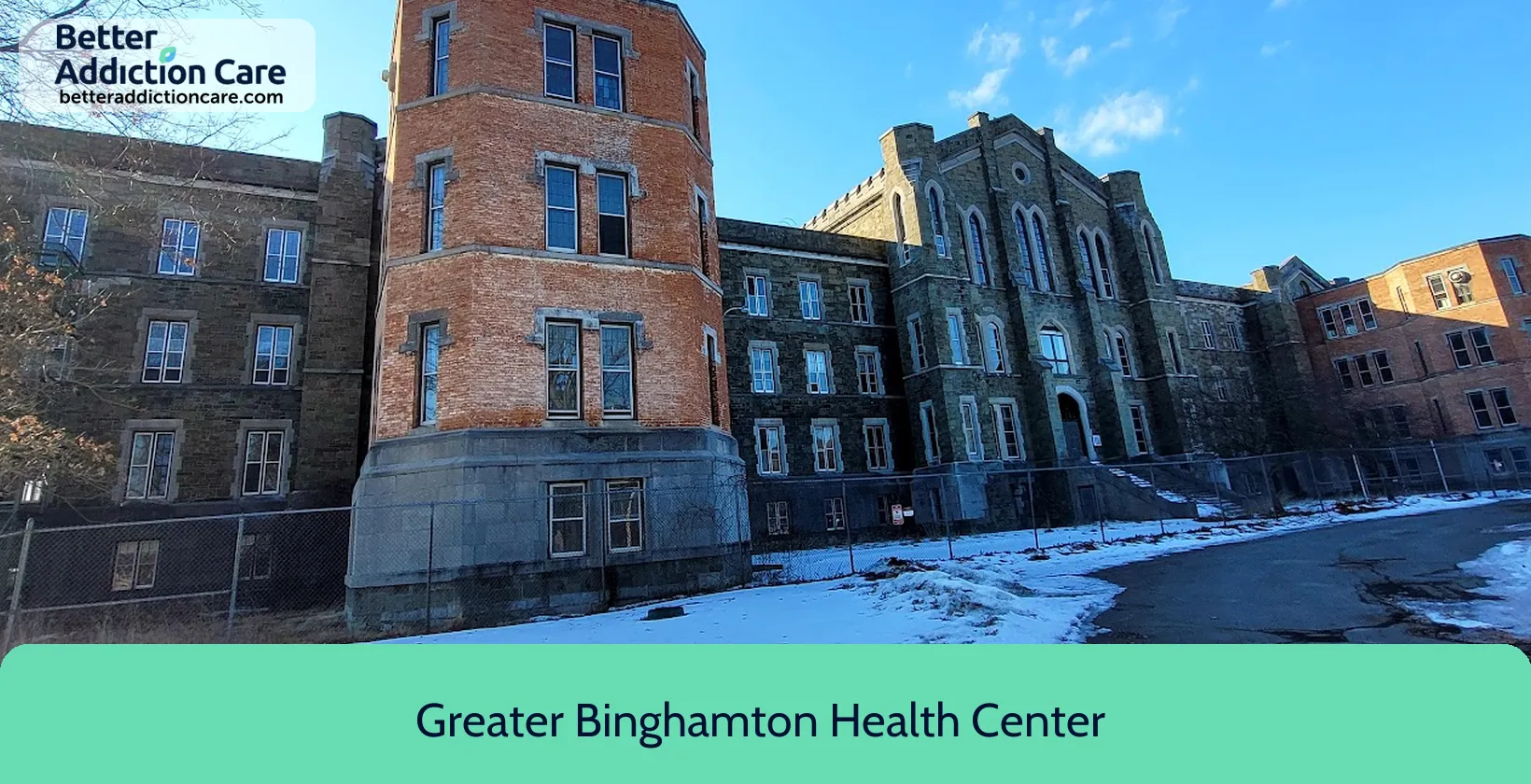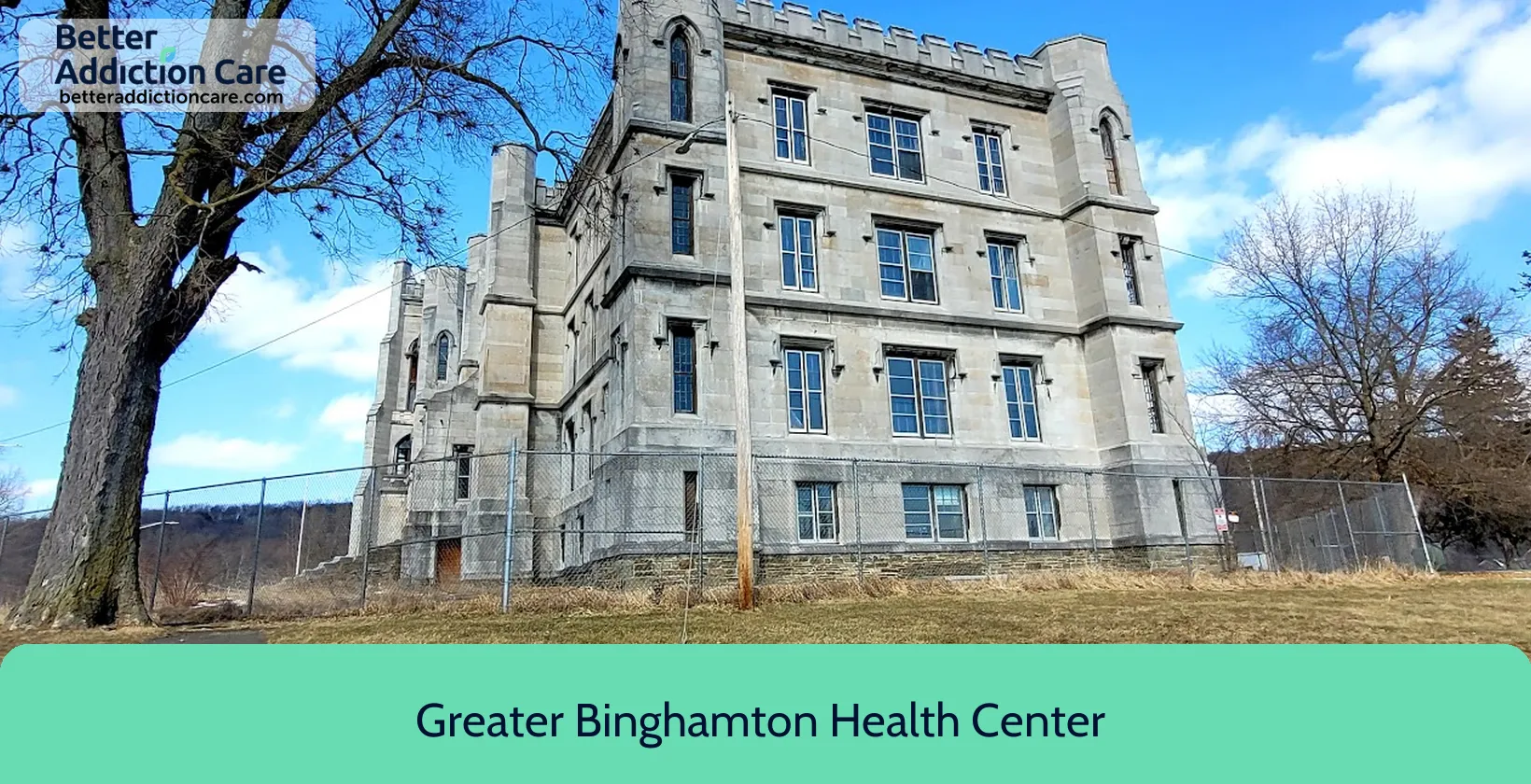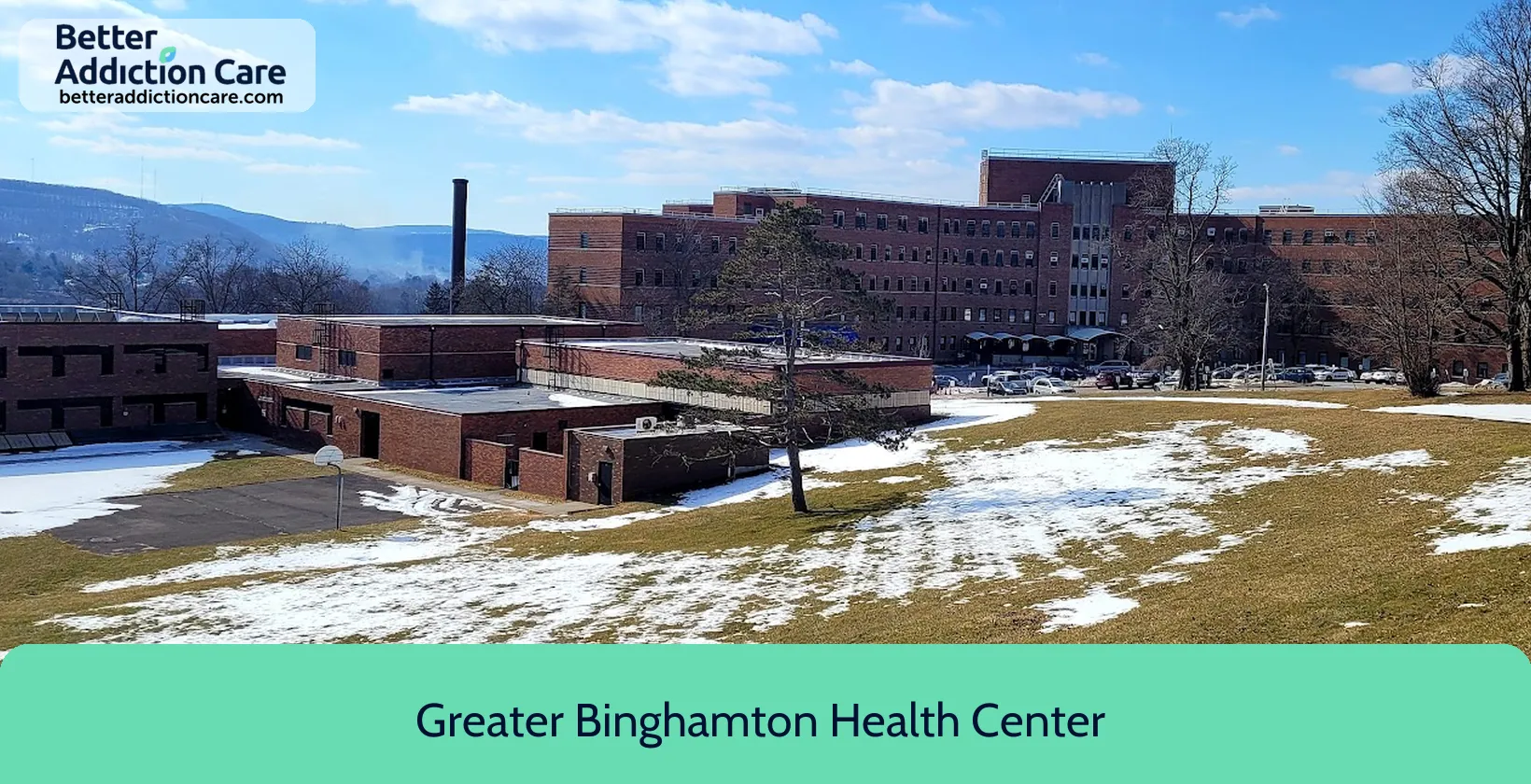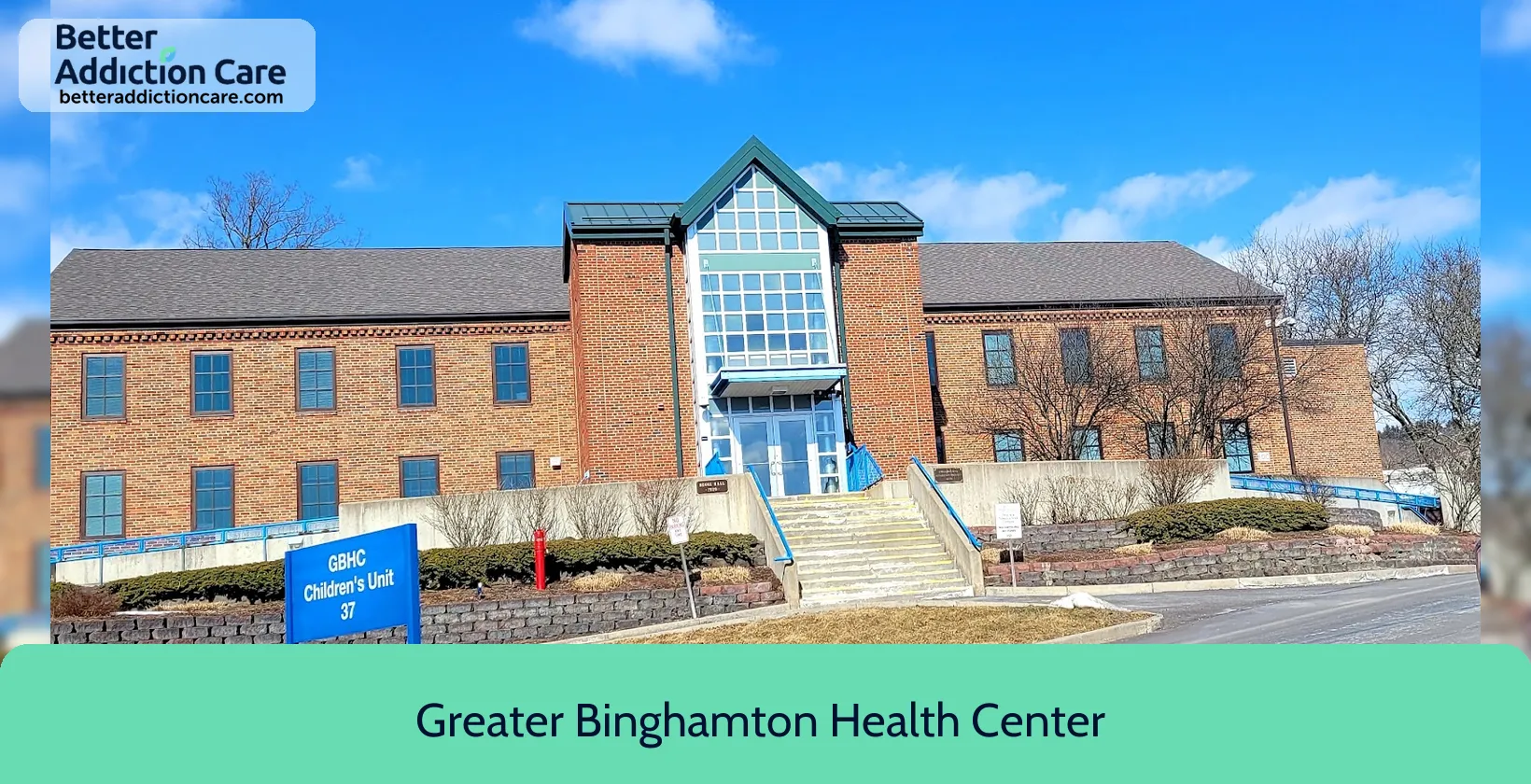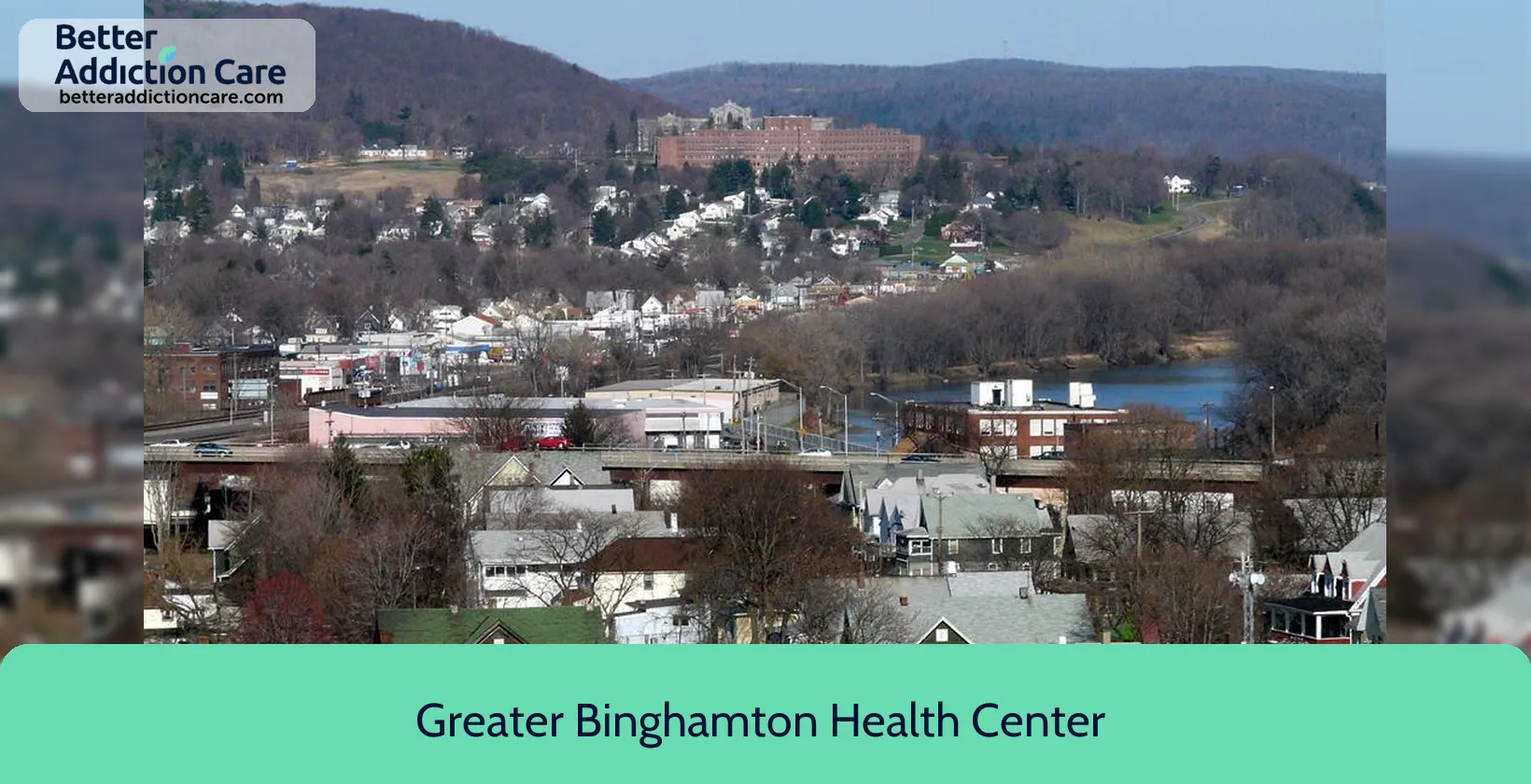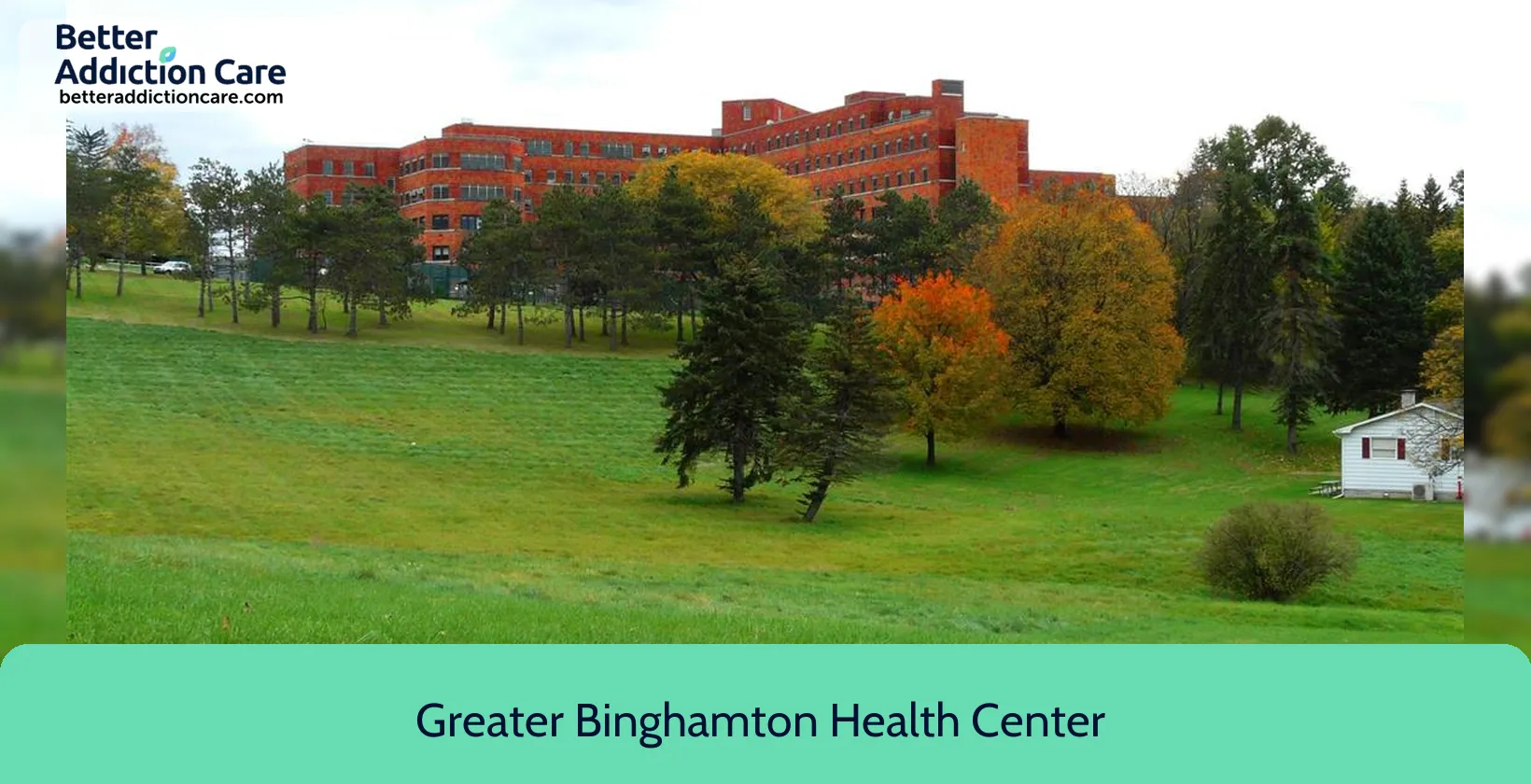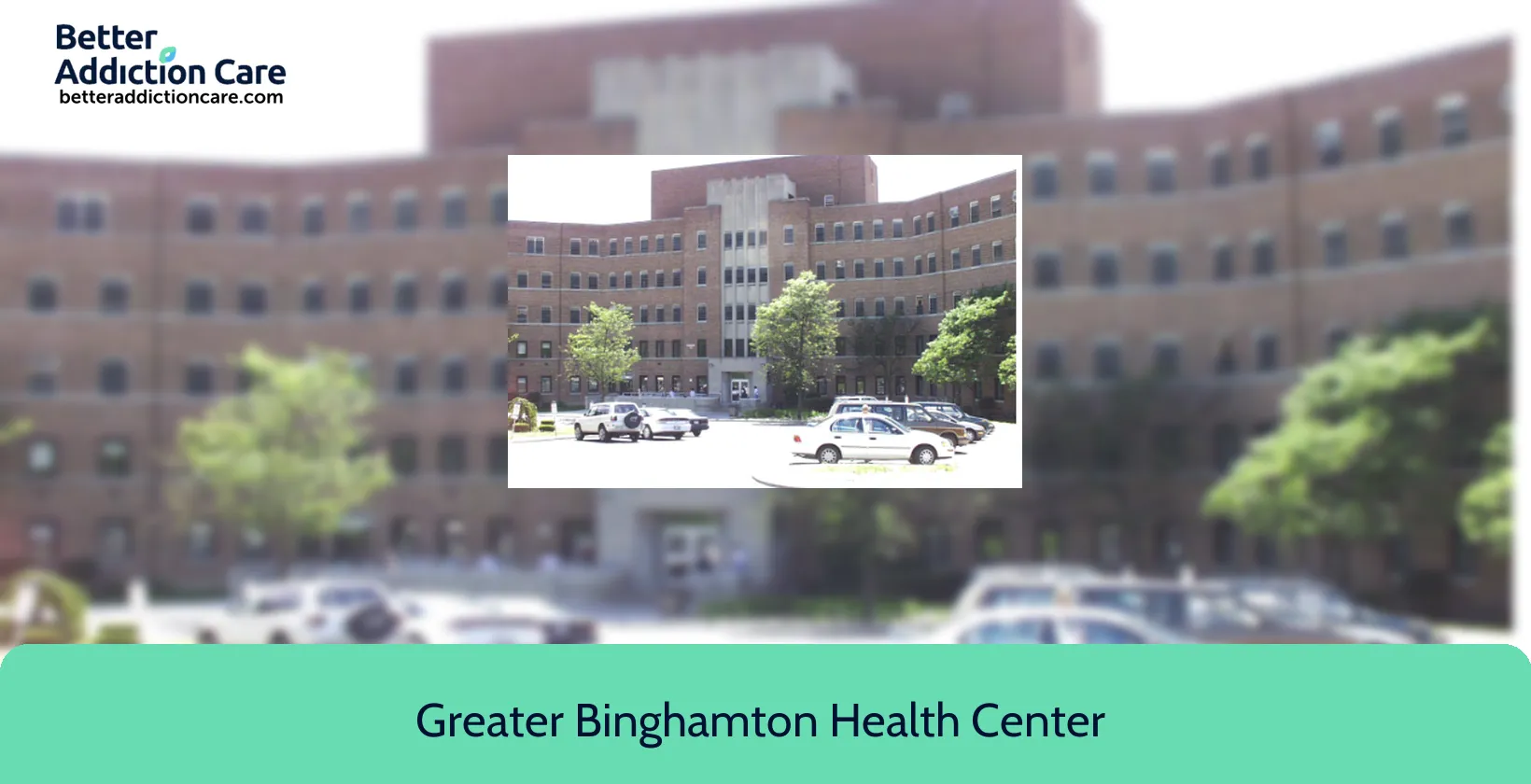Greater Binghamton Health Center - Psychiatric Inpatient Unit
Overview
The NY State Office of Mental Health is in charge of the state-run psychiatric hospital Greater Binghamton Health Center - Psychiatric, which is situated in Binghamton, New York. The clinic provides adults with specialized drug misuse treatment programs in addition to a wide variety of inpatient and outpatient mental health treatments for people of all ages. To guarantee that treatment is available to individuals in need, the institution takes most private insurances, Medicare, Medicaid, and grants. It also gives access to state funds and grant programs.
In addition to partial hospitalization (day therapy) and outpatient care, the facility offers inpatient care around-the-clock, so patients may get continuous or flexible care according on their requirements.n addition to participating in evidence-based therapeutic techniques including dialectical behavior therapy (DBT), cognitive behavioral therapy (CBT), and experiential treatments like music, art, and recreational therapy, clients also engage in individual, group, and family counseling.
The walk-in emergency services and telehealth counseling offered by Greater Binghamton Health Center are particularly noteworthy since they provide prompt mental health help. Patient experiences differ; some former participants have expressed discontent with staff interactions, while others have praised the program for its capacity to support those who are dedicated to their rehabilitation. The extensive range of services offered by the center guarantees that people get the help they need to address both immediate and long-term mental health issues.
Additionally, Greater Binghamton Health Center is vital to the Southern Tier community of New York, collaborating closely with regional partners to promote recovery from drug addiction and mental health issues. The facility is dedicated to hiring a diverse staff in order to better serve the community and assist patients in leading satisfying lives after receiving treatment.
The institution is an essential resource for people and families in the area since it is dedicated to provide top-notch mental health services.
Greater Binghamton Health Center - Psychiatric Inpatient Unit at a Glance
Payment Options
- Cash or self-payment
- Medicaid
- Medicare
- State-financed health insurance plan other than Medicaid
- Private health insurance
Assessments
- Screening for tobacco use
- Comprehensive mental health assessment
Age Groups
- Children/adolescents
- Young adults
- Adults
- Seniors
Ancillary Services
- Case management service
- Diet and exercise counseling
- Education services
- Family psychoeducation
- Illness management and recovery
Highlights About Greater Binghamton Health Center - Psychiatric Inpatient Unit
6.96/10
With an overall rating of 6.96/10, this facility has following balanced range of services. Alcohol Rehabilitation: 8.00/10, Drug Rehab and Detox: 6.00/10, Insurance and Payments: 6.00/10, Treatment Options: 7.82/10.-
Alcohol Rehabilitation 8.00
-
Treatment Options 7.82
-
Drug Rehab and Detox 6.00
-
Insurance and Payments 6.00
Treatment At Greater Binghamton Health Center - Psychiatric Inpatient Unit
Treatment Conditions
- Mental health treatment
- Co-occurring Disorders
- Substance use treatment
- Alcoholism
Care Levels
- Hospital inpatient/24-hour hospital inpatient
- Hospital inpatient treatment
- Outpatient
- Detoxification
- Outpatient detoxification
Treatment Modalities
- Couples/family therapy
- Group counseling
- Cognitive behavioral therapy
- Dialectical behavior therapy
- Integrated Mental and Substance Use Disorder treatment
Ancillary Services
Additional Services
- Pharmacotherapies administered during treatment
- Housing services
- Metabolic syndrome monitoring
Special Programs
- Persons 18 and older with serious mental illness (SMI)
Contact Information
Read our Most Recent Article About Drug Addiction
DISCLAIMER: The facility name, logo and brand are the property and registered trademarks of Greater Binghamton Health Center - Psychiatric Inpatient Unit, and are being used for identification and informational purposes only. Use of these names, logos and brands shall not imply endorsement. BetterAddictionCare.com is not affiliated with or sponsored by Greater Binghamton Health Center - Psychiatric Inpatient Unit.
